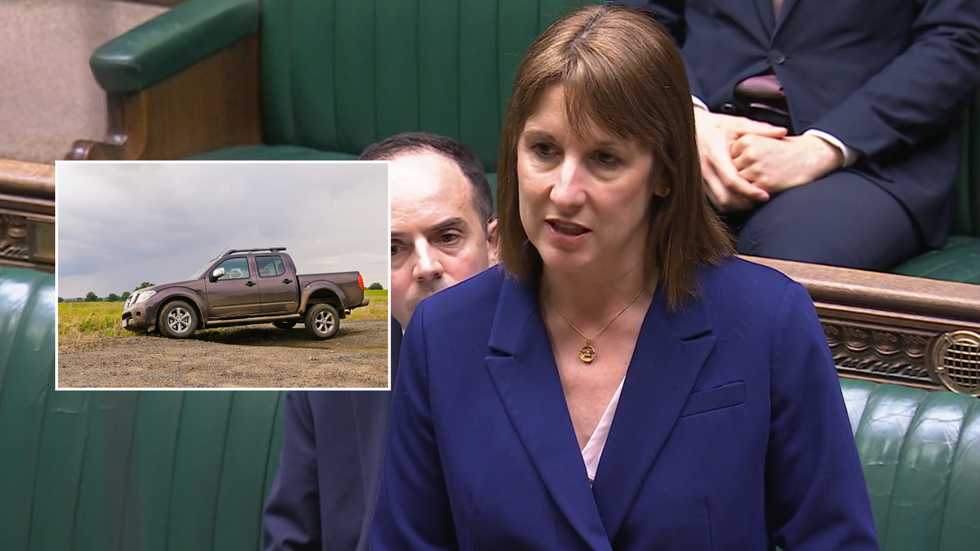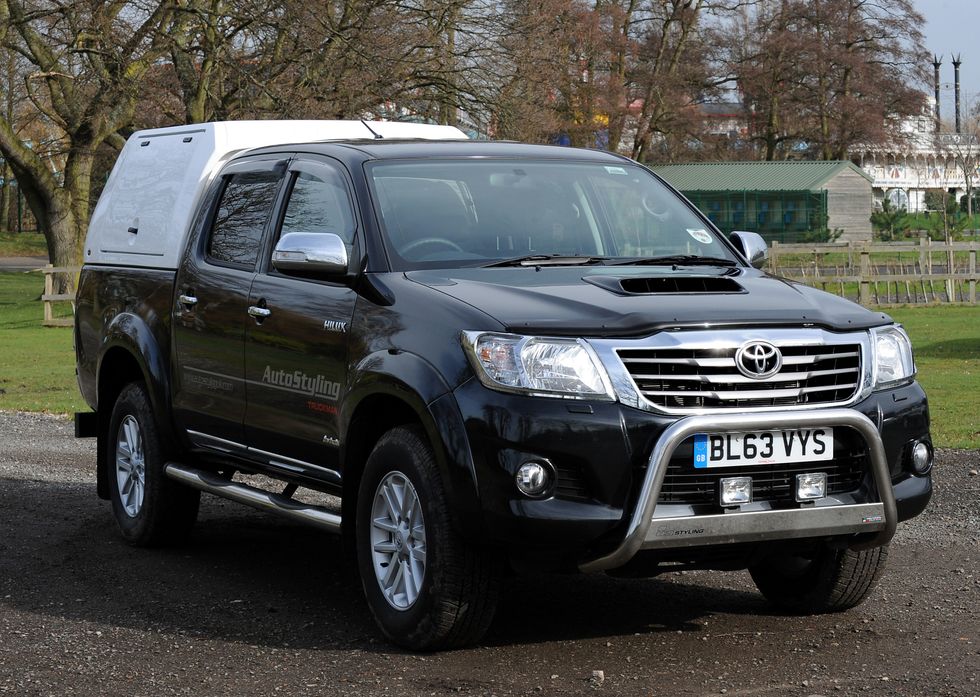WATCH: Rachel Reeves introduces new car taxes for drivers during the 2024 Autumn Budget
GB NEWS
The Chancellor reclassified double cab pick-up trucks at the Autumn Budget last year
Don't Miss
Most Read
Trending on GB News
Rachel Reeves has been accused of "hammering" drivers of a certain vehicle type with huge car tax increases, which risks impacting "thousands of working people", particularly drivers in rural areas.
It comes after the reclassification of double pick-up trucks will, for the first time, be viewed as cars instead of vans, a move which experts have warned will significantly increase the tax obligations of many drivers.
The changes came into effect last week on April 6, with owners of electric double cab pick-ups weighing over one tonne subject to Benefit-in-Kind (BiK) rates for the first time.
Under the measures, BiK rates for company cars have been adjusted, with drivers now paying between three per cent and a whopping 39 per cent to drive on UK roads.
Do you have a story you'd like to share? Get in touch by emailingmotoring@gbnews.uk

The reclassification came into effect on April 6, 2025
PARLIAMENT TV/GETTY
Tim Bonner, chief executive of the Countryside Alliance, told GB News: "Rachel Reeves' pick-up truck tax will hammer thousands of working people in the countryside and beyond.
"From farmers and gamekeepers to plumbers and builders, the twin cab pick-up has become the country's favourite workhorse. The decision to reclassify them as cars will hit working people hard."
HMRC explained that from April 6, 2025, it would no longer align its interpretation of the terms "car" and "van" for tax purposes with the definitions used for VAT purposes.
Under the VAT approach, double cab pick-ups would be classified based on payload capacity, with anything under one tonne classified as a car, and anything over that weight viewed as a van.
The new tax measures would mean that the popular Toyota Hilux 2.8 D-4D Invincible, which is priced at £41,960 with CO2 emissions of 233g/km, would be placed in the 37 per cent BiK bracket, with taxes rising from £3,960 to £15,525 annually.
HMRC detailed: "Going forward, classification of double cab pick-ups will therefore need to be determined by assessing the vehicle as a whole at the point that it is made available to determine whether the vehicle construction has a primary suitability as per the two-part test outlined at EIM23115 onwards.
"This is because typically these vehicles are equally suited to convey passengers and goods and have no predominant suitability."
The authority now classifies vehicles as trucks if it has a front passenger cab that contains a second row of seats and is capable of seating four passengers, plus the driver. Other requirements include that it has four doors, whether the rear doors are hinged at the front or the rear, as well as an uncovered pick-up area behind the passenger cab.
Earlier this year, a petition was launched which called on the Chancellor to reverse the tax treatment of double cab pick-up trucks, which was announced in the 2024 Autumn Budget.
The petition has already gathered many signatures from angry drivers who now risk paying hundreds or even thousands of pounds more in taxes.
The petition stated: "We think this change will harm many businesses, farmers, tradespeople, and individuals relying on double cab pick-ups for work, making work vehicles costly.
"We think reclassifying them as cars drastically raises costs by increasing Benefit-in-Kind tax and lowering their capital allowances.
LATEST DEVELOPMENTS:
- Electric car battery checks could see drivers give up petrol and diesel vehicles - 'Robust and long-lasting'
- BMW to make electric cars 'produce sound' similar to petrol and diesel engines amid safety concerns
- Highway Code rules could catch out rural drivers amid fresh warning for motorists - 'Be careful!'
 Double cab pick-up trucks will be reclassified as company cars under the new tax rulesPA
Double cab pick-up trucks will be reclassified as company cars under the new tax rulesPA"Essential to rural operations, they carry heavy loads and handle rough terrain, yet we think this tax reclassification ignores their commercial use. Reconsider the change and engage affected industries."
Drivers have until May 29 to sign the petition. If it reaches 10,000 signatures, the Government will be required to respond, but if it hits 100,000 signatures, the motion will be debated in the House of Commons.








